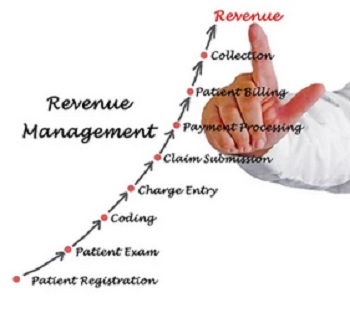RCM, a must for healthcare providers
October 26, 2021 | Tuesday | Views | By Nagapriya Asuri, Senior VP – Head of RCM Service Line, Omega Healthcare Management Services
Nagapriya Asuri, Senior VP – Head of RCM Service Line, Omega Healthcare Management Services gives an insight on how an RCM process can make or break the business for healthcare providers, thus making its efficiency critical
Image Credit: Shutterstock
Revenue Cycle Management (RCM) is unquestionably the most important source of income for healthcare providers. According to projections, the industry is pegged to grow at a CAGR of 11.5 per cent during 2021-2028 to reach a value of $633.6 billion by 2028. With workflow optimisation and synchronised management of the RCM processes gaining more acceptance, this industry is witnessing dynamic technology innovation, tremendously propelling growth and expansion.
Challenges of the RCM process
The RCM process of submitting claims, processing payments, and generating income - critical for the sustenance of the healthcare industry, has its set of challenges to manoeuvre due to several dynamic factors.
- With the influence of value-based care, Accountable Care Organizations (ACOs), and population health programmes, the payer segment of the healthcare industry is becoming increasingly complex. As a result, market dynamics have shifted dramatically. Payers are now increasingly claiming ownership of the revenue cycle. Providers were once able to control their revenue cycle and expect to get paid whenever they submitted a claim to a payer. However, things have changed now. Payers now impose a complex set of procedures that providers must follow to receive their dues.
- Lawmakers closely monitor medical billing and revenue collections. Submitting accurate claims to both commercial and federal insurance providers is essential for quick and correct reimbursements. Healthcare providers are finding it harder to acquire their dues due to legal consequences and increased restrictions in the field.
- Many healthcare companies rely on obsolete technology to keep track of their finances. A mix of outdated technology and inefficient insurance provider engagement can further complicate the RCM process.
Need for robust RCM
Robust RCM solutions are a must-have to sustain growth and profitability, and above all, deliver quality care:
- Healthcare providers must create accurate and effective billing systems with more transparency and interoperability. With healthcare reimbursements steering away from fee-for-service payments and gearing toward value-based care, establishing robust accounting standards is more vital than ever.
- Medical institutions are attempting to balance low operational costs with high-quality patient treatment. They must collect payments from patients and insurance companies in time to stay profitable. Hence the need for efficient management of the revenue cycle.
- State-of-art technologies coupled with centralised billing/coding processes can help providers overcome a chunk of their struggles. Including such technology as part of an overall business plan can help achieve improved reimbursement, accurate billing compliance, and excellent clinical outcomes.
- Patient centricity - Healthcare providers frequently acquire and use designated revenue cycle management processes to store and manage the billing records of patients. A robust RCM software can minimise the time between providing a care service and collecting payment by connecting the process with other health IT systems.
- Having a revenue cycle management partner on board is a strategy proving to be highly beneficial for several healthcare providers. It allows them to deliver more quality medical services to those in need. Before choosing an RCM partner, the right balance of service capability, technology and analytics, and clinical competencies are critical. Healthcare services providers must select a partner who understands their goals and tackles the difficulties efficiently, thus delivering a seamless RCM process.
- With the advent of technology across the healthcare continuum, automated RCM processes can help providers optimise resources and offer much-needed analytical insights for critical decisions. Healthcare firms can automate their RCM processes to keep their employees and reduce staff turnover. Minimising overhead expenses and improved performance are additional benefits to be leveraged. The data and visualisation features provided by RCM software can enable a company to avoid performance problems and supplement Key Performance Indicators (KPI). Automatic data gathering from within the sub-processes of RCM can connect with other data points in the billing infrastructure. It can help with the swift resolution of problems and enhance critical metrics like controllable spending and quality of care.
An RCM process can make or break the business for healthcare providers, thus making its efficiency critical. Ineffective management of the revenue cycle can stymie a healthcare service provider’s growth potential and position. Any hospital, lab, or even individual service provider, stands to benefit from a robust RCM system - responsive, reliable, and adaptable to an organisation's existing infrastructure while being compliant with the industry standards. Such solutions can help providers better manage uncertainties like the COVID-19 pandemic that has profoundly impacted inpatient volumes and revenues. Flexible RCM systems can also help manage new-age service requirements such as telehealth and other forms of virtual engagement, essential to stay relevant and thrive.









